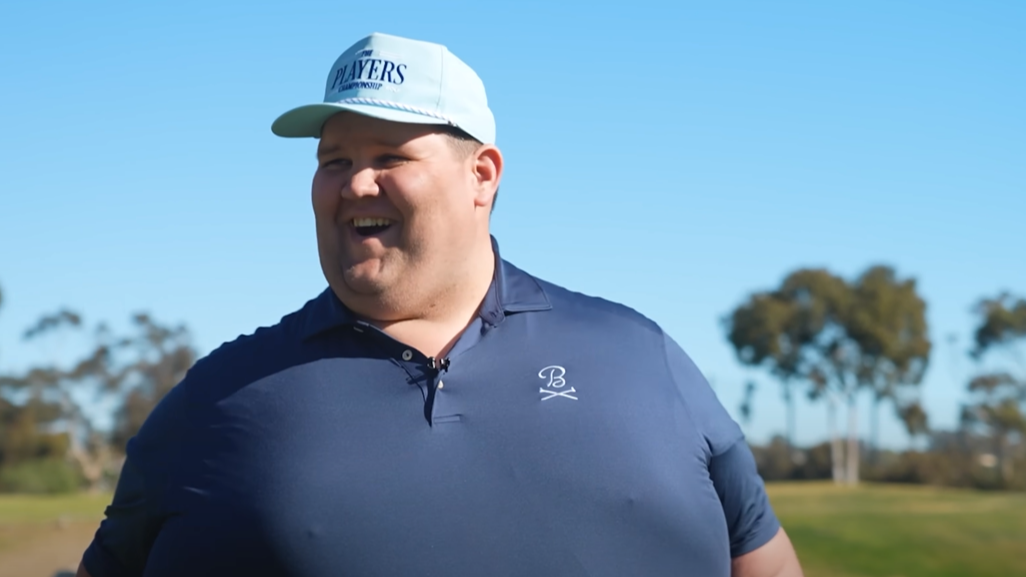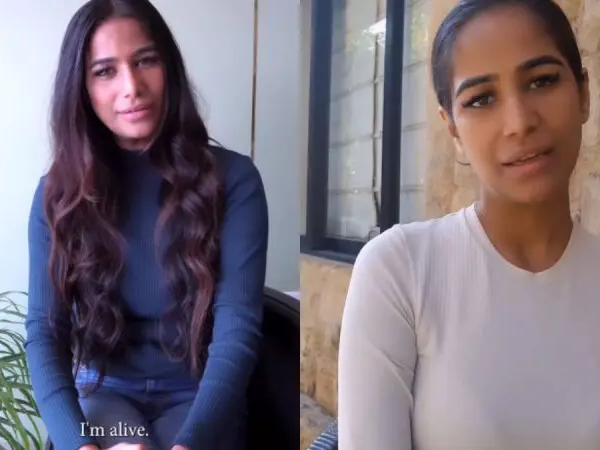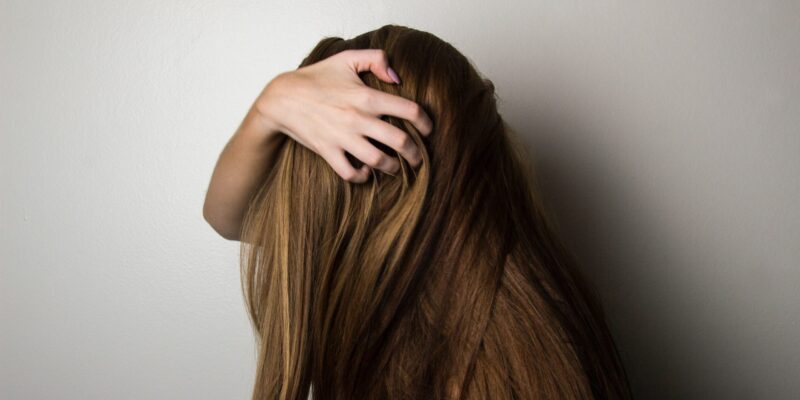
You undoubtedly think about your hair on a regular basis, whether you’re worried about a poor hair day, enjoying a good blowout, or debating whether to try out a new style you saw on your favourite celebrity.
However, you may be overlooking indications about your health that your hair is revealing. According to research, changes in the appearance, texture, or thickness of your hair can indicate underlying health issues. Here’s how to detect if your hair changes are caused by a medical condition, heredity, stress, or a nutritional deficiency.
1. Stress Can Make You Go Gray

Anyone who has observed presidential hair alter from campaign to campaign will realise that stress causes hair to grey. According to one study, persistent stress may lead to greying hair by inducing DNA damage and decreasing the availability of pigment-producing cells in hair follicles. Hair loss can also be caused by stress.
Another sort of stress, oxidative stress, may also contribute to grey hair. “Oxidative stress (when cell-damaging free radicals inhibit the body’s repair processes) may affect pigment-producing cells,” explains Paradi Mirmirani, MD, of The Permanente Medical Group in Vallejo, California.
Greying hair is a natural component of ageing because your hair follicles produce less colour as you age. Dr. Mirmirani adds that your genes influence when your hair greys. You might want to ask your parents how old they were when they saw the first sign of silver, and then do the same. In fact, one study discovered the gene that causes grey hair.
2. Brittle Hair Could Indicate Cushing’s Syndrome

Brittle hair is one of the symptoms of Cushing’s syndrome, which is caused by an excess of cortisol, the body’s principal stress hormone. According to Mirmirani, there are many other more evident signs of Cushing’s syndrome, such as elevated blood pressure, weariness, and back pain.
Cushing’s syndrome treatment may include adjusting the dose of a medicine that may be causing the condition, such as glucocorticoids, which are steroids used to treat inflammation caused by a range of conditions. Others may require surgery, chemotherapy (if the source of Cushing’s is a malignant tumour), or radiation therapy to address the adrenal gland’s overproduction of cortisol.
3. Hair Thinning Could Be a Sign of Thyroid Disease

People with hypothyroidism, a condition in which your thyroid gland does not create enough thyroid hormones, may experience increased hair shedding and a change in hair appearance, according to Mirmirani.
According to the National Institute of Diabetes and Digestive and Kidney Diseases, around 4.6 per cent of the U.S. population ages 12 and older has hypothyroidism, while the majority of instances are mild. It can cause hair loss as well as fatigue, cold intolerance, joint discomfort, muscular pain, a bloated face, and weight gain. Thyroid-stimulating hormone (TSH) testing will be used to diagnose the illness, and therapy will consist of taking thyroid medication.
4. Hair Shedding Could Be a Sign of Anemia
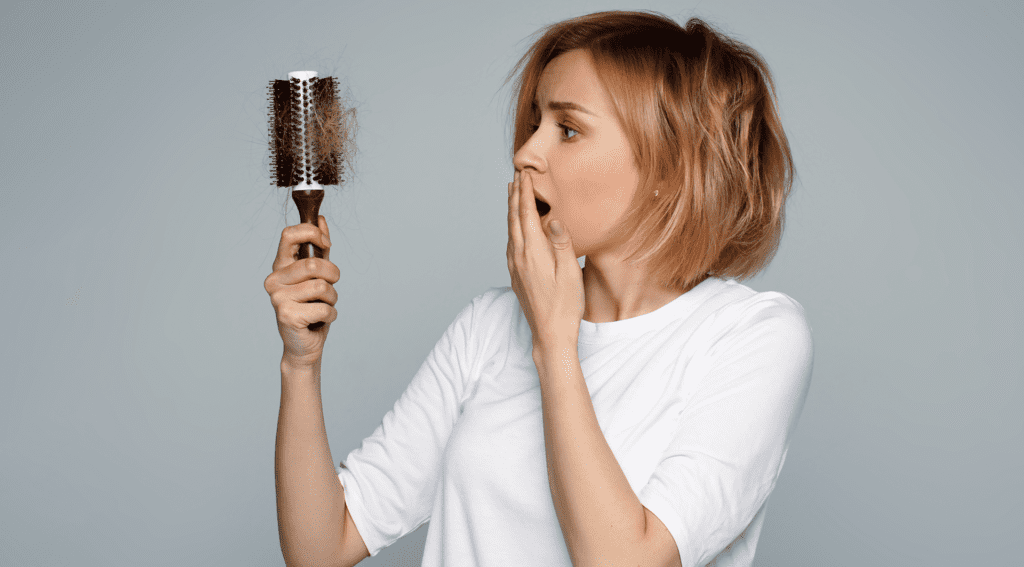
If you see a lot more hair in your hairbrush or on your shower floor, this could be an indication that your body has low iron levels, sometimes known as anaemia, and should be tested. “This is another blood test we do when you complain of hair changes,” Mirmirani states. She adds she is more likely to order this blood test for vegetarians or women who have heavy periods, both of which increase the likelihood that hair changes are caused by low iron.
It’s unclear why low iron might cause hair loss, but iron is required for numerous biological and chemical activities, including hair growth, according to Rebecca Baxt, MD, a dermatologist in Paramus, New Jersey. If your doctor decides that you are actually iron deficient, she suggests eating more iron-rich foods or taking an iron supplement to aid with hair loss.
5. Hair Loss Could Indicate a Protein Deficiency
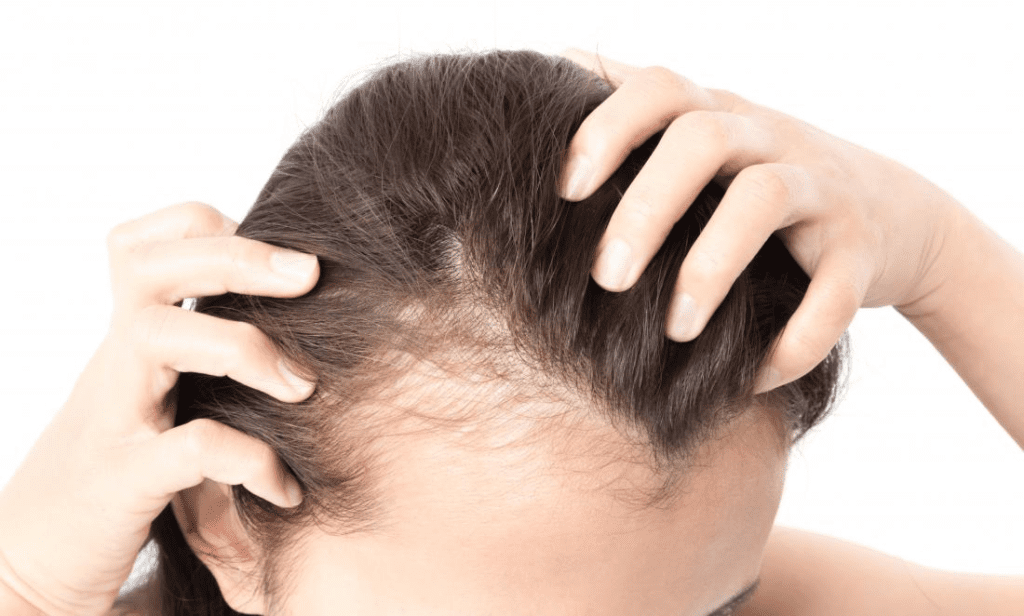
Protein is necessary for hair health and growth (a protein deficiency has been linked to hair thinning and loss). According to Mirmirani, most Americans do not suffer from protein insufficiency; most adults require 0.8 grammes of protein per kilogramme of body weight. Nonfat Greek yoghurt, tilapia, beans, and chicken breast are all high in protein.
People who have gastrointestinal issues or who have recently had gastric bypass surgery may have difficulty digesting protein. These specialised conditions will require the assistance of your doctor. However, most hair thinning, even in women, is most likely caused by heredity.
6. White or Yellow Flakes Could Mean You Have Dandruff

Dandruff, a persistent scalp problem, is characterised by yellow or white flakes in your hair, on your shoulders, and even in your brows. Dandruff normally does not signify a significant health condition and can be addressed with over-the-counter speciality hair shampoos or a prescription shampoo.
According to the Mayo Clinic, one of the most prevalent causes of dandruff is a disorder known as seborrheic dermatitis. Seborrheic dermatitis is characterised by red, oily skin covered in flaky white or yellow scales. Malassezia, a yeast-like fungus, can similarly irritate the scalp. Dandruff can also be caused by insufficient shampooing, sensitivity to hair care products, and dry skin. (Dandruff is typically worst in the winter when interior heating can cause the skin to dry out.)
7. Damaged hair might conceal other health issues

Although hair can reveal information about your health, Mirmirani believes that patients are more likely to complain about the damage done by colouring and applying heat to style their hair.
Too much heat, whether from a flat iron or a blowout, can undoubtedly damage your hair, making it dry, brittle, and difficult to maintain, according to Tania Moran, a licenced hairstylist at Swank Hair Salon in New York City. Moran advises using no more than one hot tool each day (occasional double heat operations are acceptable, but not every day).
She adds that if you utilise heat on your hair, you should always use products with protective components. “Serums and shine drops tend to have qualities that preserve the hair when using direct and indirect heat,” she says.


